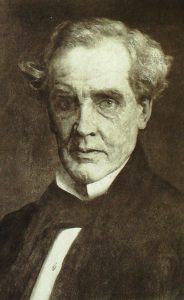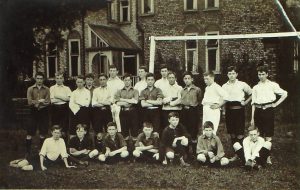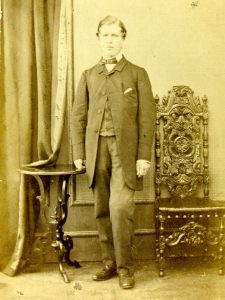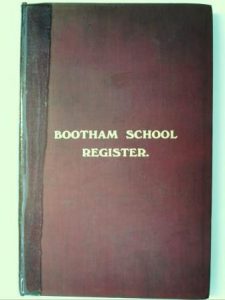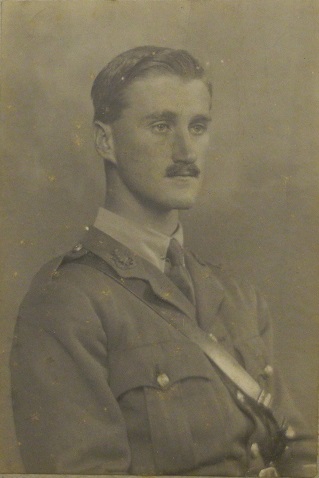
Arthur Reginald Deane died on the 14th November, 1917 of wounds received in the War, aged 22 years.
He was born at Szcheun, China in 1895. In 1905 he entered Saffron Walden School and then proceeded to Bootham School, having gained an entrance scholarship in 1910. He was at Bootham from 1910 to 1912.
The school magazine, “Bootham” of November 1912 reported:
“A. R. DEANE leaves from the College Class, having passed Matriculation last January. He was two years at Bootham, during the whole of which time he played cricket and football for the 1st XI, being captain of the former for his last term. He won the Senior Cup at athletics this year, after a close fight. He represented the School against St. Peter’s at Fives. He was a reeve during his last year.”
The football captain wrote of him:
“DEANE, A. R.—Has faithfully served the school both as secretary, and as centre forward. He is a clever and a dashing player and shoots well.”
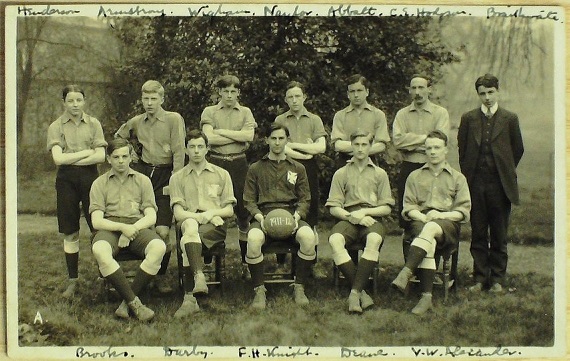
and a cricket captain:
“A. R. DEANE.—A close competitor for the O.S. bat, having scored well in many useful and attractive innings. An effective, though risky, on stroke off the leg stump is his favourite. Ought to make a good medium bowler; very successful once or twice. Neat and quick in the field and in return.”
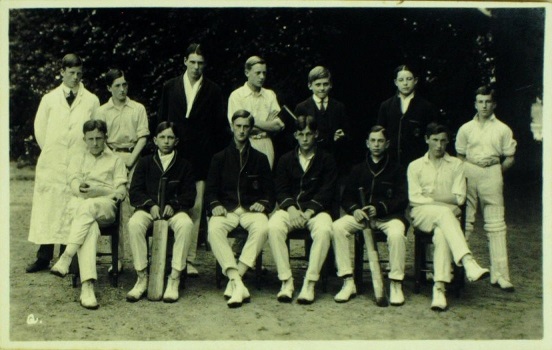
After Bootham, Arthur was pupil to H. F. Knight & Co., Chartered Accountants, living in Middlesex. He became a Second Lieutenant in the Royal Sussex Regiment in October 1915. In June 1917, “Bootham” reported:
“A. R. DEANE writes from the 2nd Riding Sussex in France to say that he must say nothing.”
Then in December 1917 issue of “Bootham” reported:
“DEANE.—On the 14th November, 1917, died of wounds, Arthur Reginald Deane (1910-12), of 36, Essex Road, Enfield Town, Middlesex, aged 22 years.”
In the following May, “Bootham” included the following “In Memoriam” piece:
“A. REGINALD DEANE was a boy of a shy and sensitive temperament, whom it was not easy to get to know, but with whom friendship was a great privilege.
Coming to Bootham at a fairly advanced age, and going straight into the Matric. class, he won his way to a leading position in the School by ability and industry, for he had few of those more striking qualities which readily command the homage of other boys.
He did not easily do himself justice, and needed two tries for Matric. But I always felt that he had plenty of mathematical ability, with a keen, clear mind. He made an excellent but unobtrusive Reeve, played for the football, fives and cricket teams (being Captain of the latter), and won the Athletics Championship. He was a keen sportsman at them all.
In 1912 he was articled to a firm of chartered accountants, and there he displayed a cheerful industry and efficiency, gladly accepting- any task, however humdrum. His writing and neatness were admirable, and typical of the courtesy and thoughtfulness of his nature as well as of the gentlemanliness of his whole bearing. Though sensitive, he never showed resentment.
His experience in France had developed him remarkably —physically, mentally, and every way. Still entirely devoid of “side”, he was devoted to his duty, and most considerate of his men. He was in very deed an officer and gentleman. F. H. K.”

